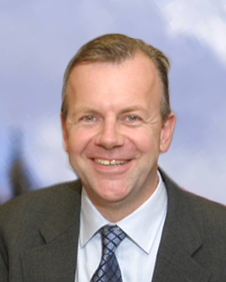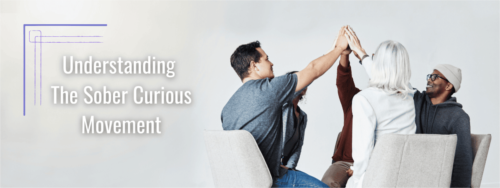
.jpg)
What To Know About Drug Use Disorder And Addiction
No one ever plans on developing a drug use disorder, but this challenging disease affects millions of Americans each year. Drug use disorders transform your body and brain and can ruin your life. Thankfully, there is help for individuals battling drug use. Specialized drug addiction treatment is accessible in the New Jersey area and can empower you to regain control of your life. Keep reading to discover more about drug use disorders and addiction and how individuals and their family members can conquer these conditions with expert support.
What Is A Drug Use Disorder?
A lot of people use illicit drugs for recreational purposes or powerful prescription drugs to treat medical conditions. But at what point does drug use transform into a life-impacting disorder?
Generally, drug use becomes a disorder when an individual exhibits problematic patterns of drug use and can no longer control their use. Drug use disorders are mental health disorders that span from mild to severe. These health issues unsettle your life and negatively impact your wellbeing.
There are different facets of drug use disorders:
- Dependence develops when your body becomes so reliant on a drug that it struggles to operate when it’s not present. You will experience distressing withdrawal symptoms if you quit using the drug.
- Addiction is a psychological dependency. Habit-forming drugs change your brain chemistry so that you constantly crave those substances and feel urged to use them increasingly. You are no longer in command of your thoughts and conduct. Addiction is the most serious form of substance use disorders.
All levels of drug use disorder are damaging to your mind, body, relationships, and happiness. If you suspect you or a person you care about has a drug use disorder, find skilled treatment for recovery. All individuals deserve help.
What Drugs Are Addictive?
Dependency-causing drugs include potent chemicals that modify your brain. Various ones are hazardous enough to be outlawed. Others are authorized prescriptions but can become unsafe when misused or overused. Below are many of the frequently encountered addictive drugs in the United States:
- Narcotics dull the senses, which makes them effective pain relievers. Even so, people also use them to decrease other uncomfortable feelings and can get addicted rapidly. Narcotics can be categorized as opiates or opioids. Opiates are nature-based substances. Opioids are manufactured. Heroin is a widespread prohibited narcotic. Legal drugs like Vicodin, Percocet, OxyContin, morphine, and fentanyl have medical uses but are addictive and commonly misused.
- Benzodiazepines are mood-altering drugs often given for mental health disorders. But, they can lead to addiction when not taken appropriately. Their sedative qualities produce a feeling of being relaxed. Xanax and Klonopin are widely recognized benzos.
- Stimulants include medications like Adderall and Ritalin, as well as prohibited drugs like meth and cocaine. They stimulate your central nervous system, making you feel alert, energized, and elated. Overdosing of stimulants can be fatal.
Each of these sorts of drugs can develop into a drug use disorder. They all have the potential to destabilize your life and trigger dangerous medical conditions. Get help for yourself or someone close to you at the first indication of dependency.
How Does Drug Addiction Begin?
There are many reasons why individuals turn to habit-forming drugs. Many do so for enjoyment because they relish in the sensations those chemicals generate. Some people develop dependency with prescription drugs they're consuming for medical purposes. Additional people start using drugs to self-treat unmanaged mental illnesses and discover short-term respite.
Whatever the motivation for first trying these substances, the progression to addiction is typically the same. Your body grows reliant on the drug, and you get sick when you don't consume it. You use more just to function. You may gradually require greater doses for the drug to have an impact. You enjoy how its influence feels. You feel miserable without it and persist in using it. Over time, those chemicals take control of the reward system of your brain, and you are unable to feel good unless that drug is active in your body.
Once you're addicted, finding a consistent supply of the drug becomes all that matters. Numerous people damage relationships, experience medical issues, give up jobs, and take great risks as a result of drug addiction. Your addiction dominates you and every part of your life, and you are unable to recover without professional help.
What Are Some Signals Of Drug Addiction?
You might assume that a drug use disorder would be apparent. But, these disorders can appear differently among individuals, and those you care about will often try to conceal their drug use from family members. If you aren't sure if you or a loved one have a drug use disorder, review these warning signals:
- Having an uncontrollable urge to consume the drug
- Unsuccessful efforts to slow down on or stop using the drug
- Dedicating lots of energy and time acquiring the drug, ingesting it, or coming down from its effects
- Using a prescription for longer durations or in greater amounts than ordered
- Finding it hard to fulfill commitments due to drug use
- Giving up favorite pastimes to consume drugs
- Continual use of the drug even when it harms relationships
- Continued use of the drug even when it negatively impacts your physical and psychological health
- Needing more of the substance to feel its effects
- Going through withdrawal when making an effort to quit
- Taking risks to acquire or ingest the drug
Drug use disorders may look different between people. If you or someone close to you are showing any indications of drug addiction in New Jersey, speak with a doctor or addiction treatment expert.
Where To Get Drug Addiction Treatment In New Jersey
Drug use disorder treatment is a multi-step process. Many people will endure relapses and need to return to certain steps multiple times. You may not be “cured” of drug use disorder, but countless patients enter recovery and use what they learn during treatment to live a healthy, sober life. The solution is locating expert, evidence-based treatment that fits your needs.
No two addiction recovery journeys are identical. However, treatment typically includes the following steps at authorized treatment facilities:
- Drug detox is the method of letting your body clear itself of drugs. Your system will do this automatically if you refrain from taking more drugs. Unfortunately, if you have a dependence, your system will experience withdrawal without using. To properly complete detox, you should go to an inpatient detox center that supplies 24-hour medical supervision and keeps you as comfortable as possible.
- Drug rehab programs also give you inpatient support. Throughout rehab, you’ll keep living at a treatment center and enjoy access to clinical support for any ongoing withdrawal symptoms. You go to different sorts of psychotherapy daily with the purpose of grasping your addiction, learning new positive habits, and managing any underlying mental disorders. You should continue in rehab until you feel physically and psychologically ready to depart that sober environment.
- When you finish rehab, you should still get expert addiction treatment. Outpatient addiction and mental health services will help you live your life without drugs. These programs offer continuing therapy and medication management. Initially, you might go to outpatient care daily and go home every evening. Over time, you won’t need as much therapy and may only go to therapy weekly or less.
Every individual has a right to expert, supportive addiction treatment. Regardless of how advanced your addiction might be, there is hope. Seeking professional treatment at an accredited treatment facility is essential to reach your goals. There’s no need to fight addiction by yourself. You will find numerous choices for drug addiction treatment in New Jersey.
How Can Families Support A Loved One Struggling With Drug Addiction In New Jersey?
Individuals with a drug use disorder need all the assistance they can find. Family members and friends can be crucial to addiction recovery. If you care for someone with a drug use disorder, here are some ways you may assist them:
- Help them enter a treatment facility
- Help them pay for treatment
- Attend family counseling with them
- Take part in aftercare planning
- Provide a safe, substance-free place to live in
- Don’t pass judgment
- Set limits around their substance use
- Offer transportation to outpatient treatment appointments
Find Help For Drug Use Disorders In New Jersey Today
Nobody should confront drug use disorders on their own. If you or a family member are struggling with drug addiction, recovery is possible. Call Evolve Recovery Center at 908-824-6433 or submit the following contact from. Someone will reply immediately to talk about treatment. Every call is free and confidential. We answer at all hours, 365 days a year. Get help now. We are standing by for you.


